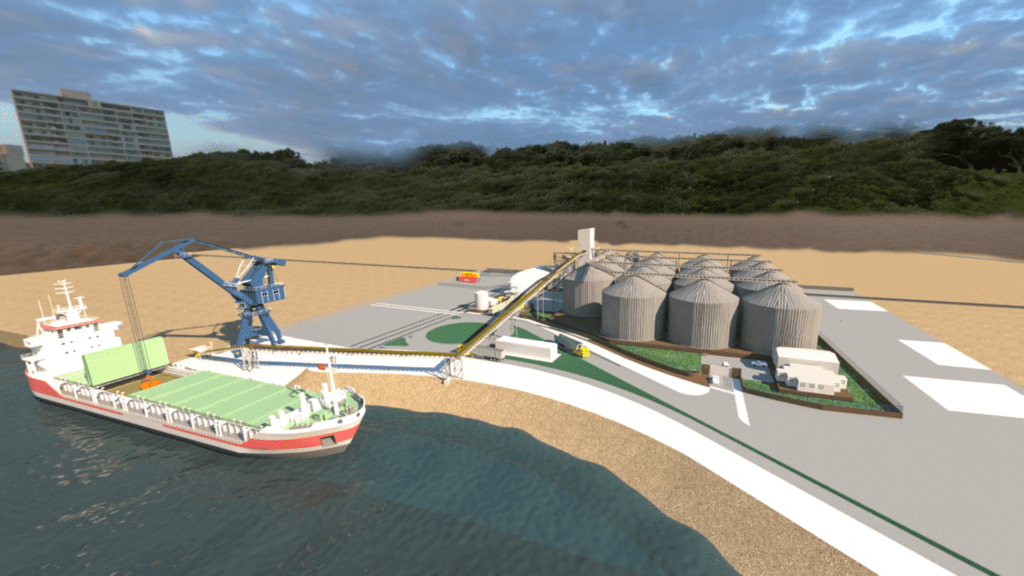As the global economy continues to evolve, strategic investments in infrastructure play a pivotal role in shaping trade dynamics and driving economic growth. One such investment is the upcoming bulk grain terminal at Nacala Port in Mozambique. Although still under construction and slated to become operational in January 2025, the terminal holds immense promise for revolutionizing the region’s grain trade and transforming global supply chains.
A Glimpse into the Future
While the bulk grain terminal at Nacala Port has yet to begin operations, its significance cannot be overstated. Scheduled to open its doors in just a few months, the terminal represents a beacon of progress and opportunity for stakeholders across various industries. From agricultural producers to international traders, anticipation is building as the terminal nears completion, poised to unlock new pathways for commerce and connectivity.
Meeting Rising Demand
The timing of the terminal’s inauguration couldn’t be more auspicious, given the global surge in demand for grain commodities. With populations growing and dietary habits evolving, the need for staple grains continues to escalate. The bulk grain terminal at Nacala Port is poised to address this demand by offering streamlined logistics, ample storage capacity, and efficient handling processes. By providing a reliable gateway for grain exports and imports, the terminal will play a crucial role in meeting the world’s hunger for essential foodstuffs.

Empowering Agricultural Growth
For agricultural producers in Mozambique and neighbouring countries, the completion of the bulk grain terminal heralds a new era of opportunity and growth. Access to international markets is essential for farmers seeking to sell their produce competitively and sustainably. With the terminal’s inauguration on the horizon, farmers can look forward to expanded market access, improved price competitiveness, and enhanced resilience in the face of global market fluctuations. This, in turn, promises to stimulate agricultural productivity, boost rural livelihoods, and drive overall economic development in the region.
Building Resilience and Security
In an era marked by geopolitical uncertainties and climate change-induced disruptions, resilience and security are paramount concerns for global supply chains. The bulk grain terminal at Nacala Port is poised to address these concerns by fortifying food supply chains and enhancing food security at both local and global levels. With its modern infrastructure and advanced operational capabilities, the terminal will contribute to the stability of grain markets, mitigate the risk of food shortages, and foster greater resilience in the face of adversity.
Embracing Sustainable Practices
As the world grapples with environmental challenges, sustainability has emerged as a guiding principle in infrastructure development. The bulk grain terminal at Nacala Port is no exception, as it incorporates environmentally friendly practices and technologies to minimize its ecological footprint. From energy-efficient operations to eco-friendly waste management systems, the terminal sets a new standard for sustainable port infrastructure in Africa and beyond. By prioritizing environmental stewardship, the terminal underscores its commitment to responsible development and long-term sustainability.
As the countdown to its inauguration draws closer, the bulk grain terminal at Nacala Port represents more than just a new addition to Mozambique’s maritime infrastructure. It symbolizes a beacon of hope, progress, and opportunity for a region poised to make its mark on the global stage. With its capacity to meet rising demand, empower agricultural growth, enhance resilience, and embrace sustainability, the terminal is set to redefine the dynamics of grain trade and propel the region towards a brighter, more prosperous future. As stakeholders eagerly await its opening, the terminal stands as a testament to the power of strategic investment and collective vision in shaping the course of economic development and trade in the 21st century.
